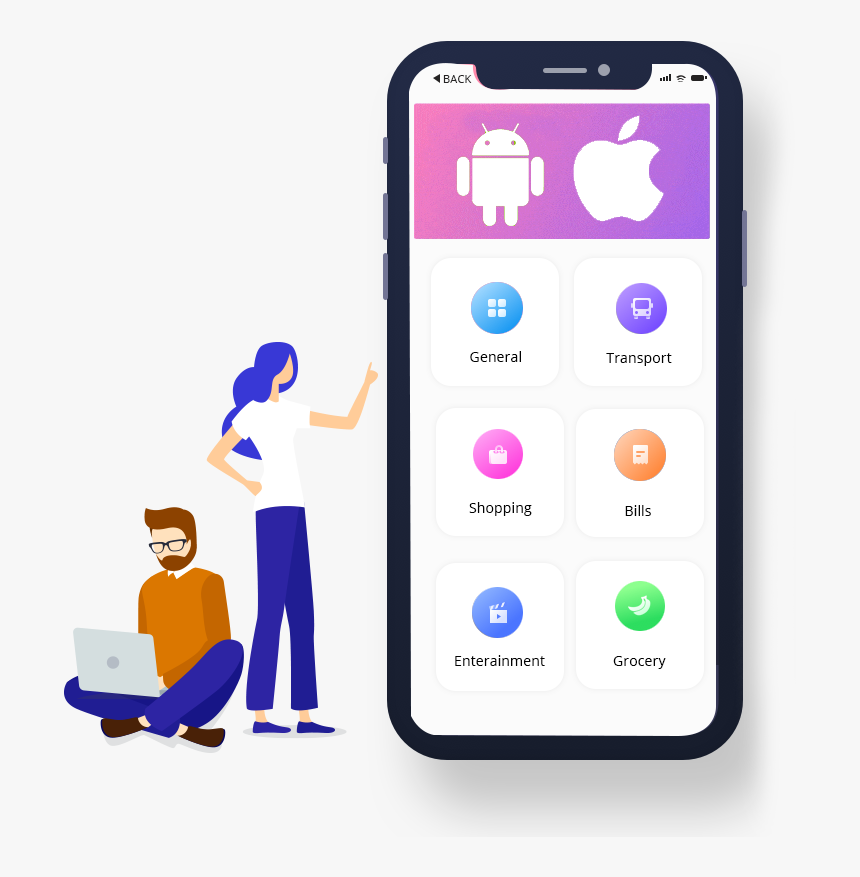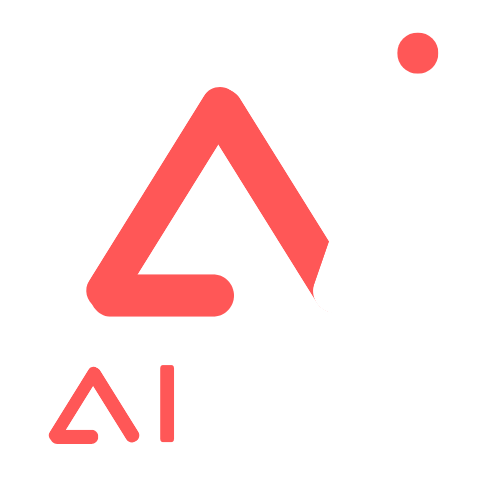June 22, 2023
By
admin
In an increasingly mobile world, enterprise mobile apps are becoming vital for businesses aiming to enhance operational efficiency, improve employee productivity, and deliver superior customer experiences. From streamlining internal processes to engaging with customers on-the-go, enterprise mobile app development offers numerous opportunities for growth and innovation. This blog explores the key aspects of enterprise mobile app development, its benefits, challenges, and best practices for achieving successful outcomes.
Key Benefits of Enterprise Mobile Apps
1. Enhanced Employee Productivity
Enterprise mobile apps enable employees to access critical business tools and information from anywhere, improving their efficiency and productivity. Mobile apps facilitate remote work, real-time communication, and instant access to data, allowing employees to perform tasks more effectively.
2. Streamlined Business Processes
Mobile apps can automate and streamline various business processes, reducing manual effort and improving accuracy. For example, apps can automate inventory management, expense reporting, and customer service, leading to more efficient operations.
3. Improved Customer Engagement
Enterprise mobile apps can enhance customer engagement by providing easy access to services, products, and support. Features like push notifications, personalized content, and seamless transactions contribute to a better customer experience and increased loyalty.
4. Data-Driven Insights
Mobile apps collect valuable data on user behavior, preferences, and interactions. Analyzing this data provides actionable insights that can inform business decisions, optimize operations, and tailor marketing strategies to meet customer needs.
5. Competitive Advantage
By leveraging mobile technology, businesses can gain a competitive edge by offering innovative solutions, improving customer experiences, and staying ahead of market trends. A well-designed mobile app can differentiate your brand and attract new customers.
Enterprise mobile apps enable employees to access critical business tools and information from anywhere, improving their efficiency and productivity. Mobile apps facilitate remote work, real-time communication, and instant access to data, allowing employees to perform tasks more effectively.
2. Streamlined Business Processes
Mobile apps can automate and streamline various business processes, reducing manual effort and improving accuracy. For example, apps can automate inventory management, expense reporting, and customer service, leading to more efficient operations.
3. Improved Customer Engagement
Enterprise mobile apps can enhance customer engagement by providing easy access to services, products, and support. Features like push notifications, personalized content, and seamless transactions contribute to a better customer experience and increased loyalty.
4. Data-Driven Insights
Mobile apps collect valuable data on user behavior, preferences, and interactions. Analyzing this data provides actionable insights that can inform business decisions, optimize operations, and tailor marketing strategies to meet customer needs.
5. Competitive Advantage
By leveraging mobile technology, businesses can gain a competitive edge by offering innovative solutions, improving customer experiences, and staying ahead of market trends. A well-designed mobile app can differentiate your brand and attract new customers.



Key Considerations for Enterprise Mobile App Development
1. Defining Objectives and Requirements
Before starting development, clearly define the objectives and requirements of the mobile app. Consider the specific needs of your business, such as workflow automation, customer engagement, or data management, and outline the features and functionality required.
2. Choosing the Right Platform
Decide whether to build a native app (specific to iOS or Android), a hybrid app (cross-platform), or a web-based mobile app. Each option has its pros and cons:
- Native Apps: Offer optimal performance and user experience but require separate development for each platform.
- Hybrid Apps: Provide a balance between performance and cost-efficiency by using a single codebase for multiple platforms.
- Web-Based Apps: Accessible via mobile browsers and offer flexibility but may have limited functionality compared to native apps.
3. User Experience (UX) Design
Designing a user-friendly and intuitive interface is crucial for the success of your mobile app. Focus on creating a seamless user experience with easy navigation, clear call-to-actions, and responsive design that adapts to various screen sizes.
4. Integration with Existing Systems
Ensure that the mobile app integrates seamlessly with existing enterprise systems, such as CRM, ERP, and databases. Proper integration enables smooth data flow, consistency, and interoperability across different platforms and tools.
5. Security and Compliance
Security is a critical aspect of enterprise mobile app development. Implement robust security measures to protect sensitive data, such as encryption, authentication, and secure APIs. Additionally, ensure compliance with industry regulations and standards, such as GDPR or HIPAA.
6. Scalability and Performance
Design the app to handle increasing user loads and data volumes as your business grows. Optimize performance to ensure fast load times and a responsive user experience, even under high traffic conditions.
7. Testing and Quality Assurance
Thorough testing is essential to identify and resolve issues before deployment. Conduct various tests, including functional, performance, security, and usability testing, to ensure the app meets quality standards and performs as expected.
Before starting development, clearly define the objectives and requirements of the mobile app. Consider the specific needs of your business, such as workflow automation, customer engagement, or data management, and outline the features and functionality required.
2. Choosing the Right Platform
Decide whether to build a native app (specific to iOS or Android), a hybrid app (cross-platform), or a web-based mobile app. Each option has its pros and cons:
- Native Apps: Offer optimal performance and user experience but require separate development for each platform.
- Hybrid Apps: Provide a balance between performance and cost-efficiency by using a single codebase for multiple platforms.
- Web-Based Apps: Accessible via mobile browsers and offer flexibility but may have limited functionality compared to native apps.
3. User Experience (UX) Design
Designing a user-friendly and intuitive interface is crucial for the success of your mobile app. Focus on creating a seamless user experience with easy navigation, clear call-to-actions, and responsive design that adapts to various screen sizes.
4. Integration with Existing Systems
Ensure that the mobile app integrates seamlessly with existing enterprise systems, such as CRM, ERP, and databases. Proper integration enables smooth data flow, consistency, and interoperability across different platforms and tools.
5. Security and Compliance
Security is a critical aspect of enterprise mobile app development. Implement robust security measures to protect sensitive data, such as encryption, authentication, and secure APIs. Additionally, ensure compliance with industry regulations and standards, such as GDPR or HIPAA.
6. Scalability and Performance
Design the app to handle increasing user loads and data volumes as your business grows. Optimize performance to ensure fast load times and a responsive user experience, even under high traffic conditions.
7. Testing and Quality Assurance
Thorough testing is essential to identify and resolve issues before deployment. Conduct various tests, including functional, performance, security, and usability testing, to ensure the app meets quality standards and performs as expected.
Best Practices for Successful Enterprise Mobile App Development
1. Adopt Agile Development Methodology
Use Agile development practices to enable iterative progress, continuous feedback, and flexible adjustments throughout the development process. Agile methodologies facilitate collaboration and ensure that the app meets evolving business needs.
2. Engage Stakeholders Early
Involve key stakeholders, including employees, customers, and partners, in the development process. Their feedback and insights can guide the design and functionality of the app, ensuring it meets their needs and expectations.
3. Prioritize User Training and Support
Provide training and support to users to ensure they can effectively use the app. Offer resources such as tutorials, documentation, and helpdesk support to address any issues and maximize user adoption.
4. Monitor and Optimize Post-Launch
After the app is launched, continuously monitor its performance and gather user feedback. Use analytics to track app usage, identify areas for improvement, and make updates or enhancements to address user needs and business goals.
Use Agile development practices to enable iterative progress, continuous feedback, and flexible adjustments throughout the development process. Agile methodologies facilitate collaboration and ensure that the app meets evolving business needs.
2. Engage Stakeholders Early
Involve key stakeholders, including employees, customers, and partners, in the development process. Their feedback and insights can guide the design and functionality of the app, ensuring it meets their needs and expectations.
3. Prioritize User Training and Support
Provide training and support to users to ensure they can effectively use the app. Offer resources such as tutorials, documentation, and helpdesk support to address any issues and maximize user adoption.
4. Monitor and Optimize Post-Launch
After the app is launched, continuously monitor its performance and gather user feedback. Use analytics to track app usage, identify areas for improvement, and make updates or enhancements to address user needs and business goals.
Conclusion
Enterprise mobile app development is a powerful tool for transforming business operations and driving innovation. By developing and implementing mobile apps that enhance productivity, streamline processes, and engage customers, organizations can achieve significant benefits and gain a competitive edge.
Ready to embark on your enterprise mobile app development journey? Contact Creative Digital Ideas today to discover how our expertise can help you build a cutting-edge mobile app tailored to your business needs and drive your success in the digital age.
Ready to embark on your enterprise mobile app development journey? Contact Creative Digital Ideas today to discover how our expertise can help you build a cutting-edge mobile app tailored to your business needs and drive your success in the digital age.






